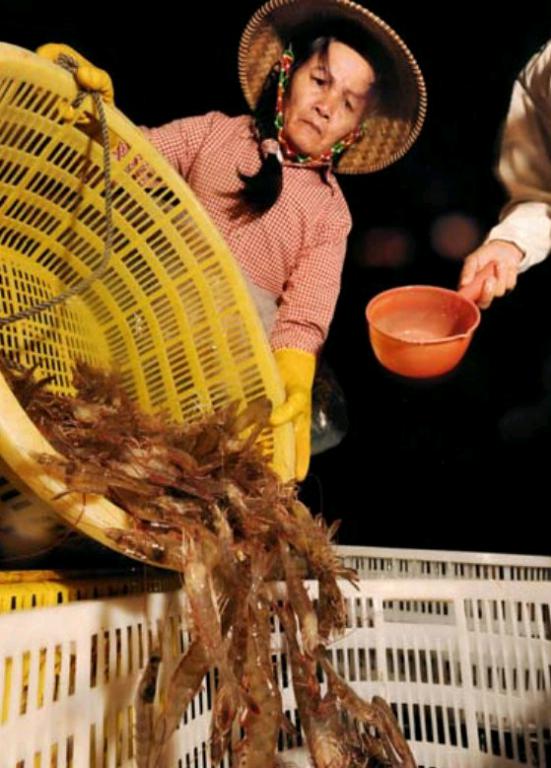Rising from Silt
2015-06-16byXiaoShibai
by+Xiao+Shibai
Jianghongwei, also known as Jianghong Town, is one of Guangdong Provinces 10 biggest fishing ports despite the fact that it is simply a small township farthest away from the county seat of Suixi in Zhanjiang City. The majority of local residents subsist through fishing. Along with selling fish and shrimp, their lives are also dependent on mangroves, which help purify the water of sewage discharged directly into the sea, preserving the ecological environment.
One of the trademark features of the mangrove is its ability to withstand wind and waves. Actually, the tree doesnt have many special powers except its ability to calm passing raging tides. The casuarina is the optimal partner of the mangrove to safeguard the coast and minimize loss of life and property on shores.
Prior to the construction of a new dyke, Jianghong had a greater population of mangroves, which decreased due to expansion of the port, aquatic cultivation, land reclamation, and real estate development over the last 30 years.
Mangroves are a highly active piece of the ecosystem, most noticeably in their ability to absorb sewage. Urban sewage usually contains a high concentration of nitrogen from human waste and phosphorus from cleaning agents.
Plants nutritional needs are mostly major elements such as nitrogen, phosphorus and potassium. From this perspective, mangroves appreciate that sewage provides“plentiful food,” despite the presence of other toxins from industrial sewage.
Actually, sewage should be grateful to mangroves. Zhanjiang City has claimed the largest coverage by mangroves in Guangdong Province – about 78 percent – also a third of Chinas mangrove resources, which have been expanded and preserved thanks to special funding after they were determined to eliminate sewage and purify water.
Mangroves are home to fiddler crabs, which are small and non-edible, constituting an important component of mangrove systems in terms of accelerating water purification in concert with microbial organisms found in mud and dirty water, as well as jumping fish, egrets, insects, and sandworms.
Over the last few years, the value of mangroves has been increasingly recognized, and many have called for their protection.
Residents of Eyu (Crocodile) Islet in Xiamen, Fujian Province, Lin Beishui and his son, Lin Dasheng, have become highly experienced mangrove planters. The islet northeast of Xiamen they inhabit was once considered “untouched.” According to official statistics, approximately 800 islands and islets have disappeared due to global climate change and the rise of the sea levels. The islet would be gone without protection from the casuarina and mangrove, especially without the persistence of people like Lin Beishui.